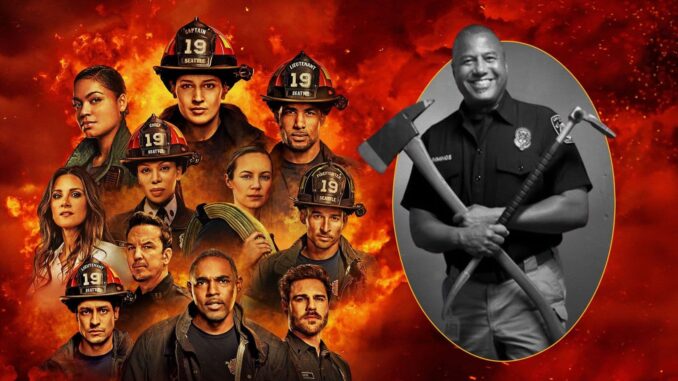
The Invisible Anchor: Brian Cummings and the Unsung Heartbeat of Station 19
The world of Station 19, with its high-octane rescues, emotionally charged emergencies, and intricate character dynamics, has captivated audiences for six seasons. We've witnessed heroes battling infernos, saving lives, and navigating the complex currents of their own personal lives, all against the backdrop of Seattle’s fire department. Yet, behind every meticulously staged rescue, every authentic piece of jargon, and every credible moment of crisis, lies a hidden force, an invisible anchor grounding the dramatic spectacle in gritty reality: Firefighter Brian Cummings. More than just a technical advisor, Cummings is the show’s quiet architect of authenticity, the unsung heartbeat that ensures the fictional inferno never truly strays from the perilous truth.
At its core, Station 19 is a work of fiction, designed to entertain. But its enduring appeal, its ability to resonate with viewers and even earn the respect of real firefighters, stems from its unwavering commitment to verisimilitude. This is where Brian Cummings steps in, a seasoned firefighter himself, bringing the lived experience of the firehouse directly to the soundstage. He isn't merely correcting a misplaced helmet or a wrongly held tool; he is translating an entire culture, a complex set of protocols, and a dangerous profession into a consumable narrative. He is the bridge between the visceral chaos of a structure fire and the controlled chaos of a television production, ensuring that when a character barks a "Mayday" or deploys a hoseline, it echoes with the true cadence and urgency of the field.
Imagine a scene: firefighters are entering a burning building, the air thick with smoke, visibility near zero. On screen, the actors move with a practiced, almost balletic precision, their breathing apparatus hissing, their flashlights cutting through the gloom. This isn't just clever choreography; it's Brian Cummings’ hand, guiding every step. He teaches actors how to navigate a smoke-filled room with limited vision, how to feel for victims, how to maintain contact with their team members. He ensures that the equipment – the SCBAs, the axes, the thermal cameras – are not just props but extensions of the firefighters’ very being. He’s the maestro orchestrating the symphony of the fireground, where every grunt, every strategic move, every shouted command must feel earned, not manufactured.
But Cummings’ influence extends far beyond the technical. He is the guardian of the profession's honor, ensuring that Station 19 portrays firefighters not as infallible superheroes, but as dedicated professionals grappling with immense pressure, profound risks, and very human vulnerabilities. He infuses the scripts with the unspoken rules of camaraderie, the dark humor that serves as a coping mechanism, and the profound emotional toll that comes with witnessing tragedy daily. When a character grapples with PTSD, or a team member mourns a loss, Cummings is there, silently reminding the writers and actors of the emotional authenticity required to do justice to those experiences. He ensures that the show respects the sacrifices and the profound sense of family that defines the fire service, preventing it from devolving into mere sensationalism.
For six seasons, Station 19 has evolved, its characters growing, its storylines deepening, but the bedrock of its credibility has remained firm, thanks to Brian Cummings. He is the invisible instructor in every training montage, the silent consultant in every strategic discussion, the quiet conscience behind every life-or-death decision. His work is not seen in an actor's Emmy win or a director's artistic vision; it is felt in the audience’s suspension of disbelief, in the palpable tension of a rescue, and in the unspoken nod of appreciation from a real firefighter watching from home.
Ultimately, Brian Cummings is more than just a name in the credits; he is the soul of Station 19's realism. He is the "hidden force" whose commitment to truth elevates a dramatic series into a powerful homage to the men and women who bravely run toward danger. His invisible hand has shaped not just the mechanics of the show, but its very heart, proving that sometimes, the most profound impact comes from the quietest, most dedicated presence behind the scenes. Without his unwavering guidance, Station 19 would be merely a show about firefighters; with him, it becomes a powerful, authentic window into their world.